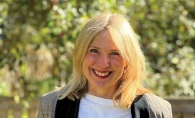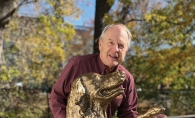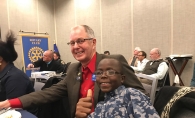If the walls could talk in the great room of Debra Schipper’s Minnetonka home, they would have a lot to say. Her powerhouse of an organization where gifted kids who are also identified on the autism spectrum can learn important social skills began in that very room—with just 12 students.
“Kids were everywhere,” Schipper says. “In the basement, the playroom, the kitchen.” She laughs and says that’s when she knew this “friendship group,” as these sessions were called, needed to grow. She knew she needed a space where these kids—and these sessions—could flourish.
That’s why she created West Metro Learning Connections and found them a new home, in Excelsior and a few years later in Edina.
West Metro now works with more than 100 kids who have been diagnosed with autism spectrum disorder (ASD). The center offers social skills classes that include guided play and interaction as well as a day school with a ratio of 1—3 teachers to every student.
“We bring the material to a level where kids are successful and can build their confidence,” says Schipper, a former high school English and German teacher and former K–12 autism specialist.
“It’s so fascinating how their brains work,” she explains. “I always knew these kids were doing their best. It’s up to us to modify the way we teach.”
Here are a few other key resources in Edina for children diagnosed with ASD.
Cindy Nollette, LP
Cindy Nollette, a licensed psychologist in Edina, has worked with ASD children and their families for the past 23 years. She stresses that for these families, an autism diagnosis is all about the journey, not the destination.
“Raising a child with autism takes a team and a village,” she says. “It’s a collaborative effort with the medical community, the district and the family.”
Nollette encourages parents to take care of themselves first and then take care of their family.
“We know that having a child diagnosed with autism is life-changing for these parents,” Nollette says. “Having something of this magnitude will change the direction of the family. There will be tough times ahead, but also great joys.”
Edina Community Education
A dedicated staff is something that Meg Barrett touts as one of Edina’s greatest assets in the public schools and community education.
Barrett, the youth programs coordinator for Community Ed, helps oversee before- and after-school care, as well as a full-day summer program for kids.
“We follow a curriculum that includes practicing social skills,” explains Barrett. “We also encourage active play, including science experiments, art projects and Lego-building.”
She says these activities allow kids to interact with each other and organically develop friendships—which is important for all kids, especially those diagnosed with ASD.
Fraser
Stories of hope and inspiration make Rachel Gardner’s work more than just a job. They are the fuel for what she says is her passion.
Gardner is a licensed psychologist at Fraser, a Twin Cities-based organization that serves children and adults with more than 60 types of mental and physical disabilities. The organization offers education, therapy and housing services. It’s also Minnesota’s largest and most experienced provider of autism services.
The original Fraser program was started in the home of Louise Whitbeck Fraser in 1935. One tool she used to reach children with autism was music, which, Gardner says, is still important today.
“Kids respond really well to music therapy,” Gardner says. “They focus on helping, turn-taking and imitation—all within music.”
Fraser has locations across the Twin Cities, including two in Richfield, which house home and community support staff and pediatric therapy services, and Minneapolis, the primary autism services location.
We Can Ride
Buddy gets up at 7:30 every morning, meets his friends and then eats a hearty breakfast of grain and hay. Buddy is one of 20 therapeutic riding horses at We Can Ride, a volunteer-based organization in Minnetonka whose mission is to improve the lives of individuals with disabilities or special needs.
“Clients come to us to ride horses — but really, that’s just the beginning,” says Mary Mitten, executive director. “We work on setting goals and objectives, hand-eye coordination and communication skills. This all happens during one lesson.”
With the help of 250 volunteers, We Can Ride offers three to four sessions a year, each about eight weeks long.
“A lot of instructors see how this service helps so many,” says Mitten, “and they say, ‘How can I not do this?’ ”









